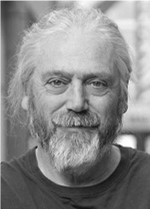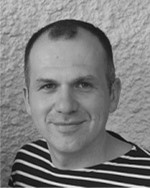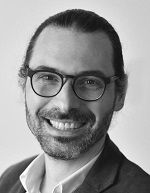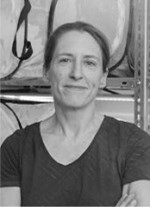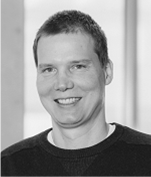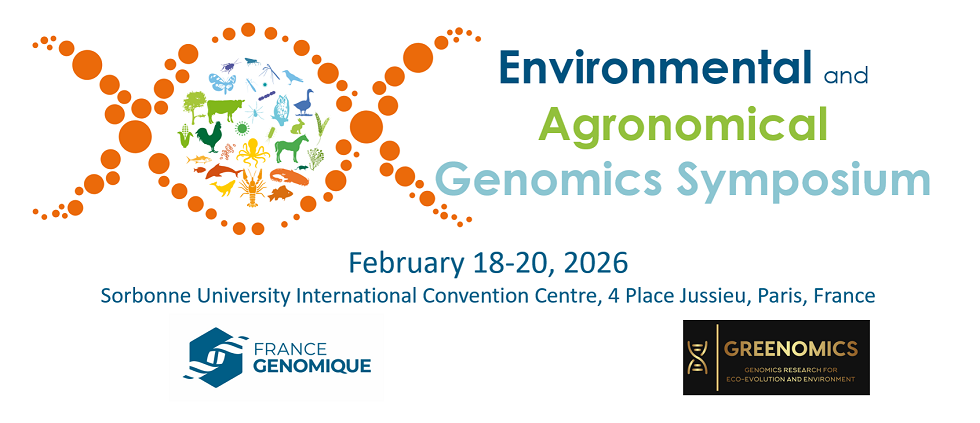
|
|
|
Invited speakersMathieu Almeida, INRAE MetaGenoPolis, Jouy-en-Josas, France "Le French Gut: mapping the intestinal microbiota on a large scale, issues and challenges"
Mathieu Almeida is a bioinformatician and INRAE researcher, scientific director of the InfoBioInfoStat and MetaQuant team within the MetaGenoPolis unit. He specializes in the exploration and characterization of the digestive microbiota in relation to different clinical conditions or dietary habits, in humans and animals, using metagenomic sequencing data. He is particularly involved in the analysis of the link between microbiota and human health, as part of a project focused on colorectal cancer (H2022 microb-AI-ome), Parkinson's disease (Michael J Fox Foundation ASAP), and within the Le French Gut project, aiming to analyze 100,000 French intestinal microbiota, as well as the Million Microbiomes from Humans Project (MMHP), aiming to analyze 1,000,000 of human microbiota worldwide.
Mark Blaxter, Wellcome Trust Genome Campus, Hinxton, United Kingdom "Sequence locally, think globally: biodiversity genomics at scale" Mark Blaxter is Programme Lead for the Sanger Institute's new Tree of Life Programme. ToL has as an overarching goal the sequencing to high quality of all species on Earth. ToL is a collaboration with others worldwide, under the umbrella of the Earth BioGenome Project. He is also a Senior Group Leader of the Evolutionary Genomics team. They are interested in the processes of evolution of genomic novelty and how opportunity and constraint play roles in the origins of the diversity we observe today. They work within the Tree of Life Programme to generate high-quality genome assemblies for a wide array of species, from across the diversity of life. While their main interets are in the evolution of animals, they also work on plants, fungi and protists, and on the bacterial cobionts that live on and in these species. They develop new software tools for genome assembly, validation and analysis.
Alexandra Calteau, LABGeM, CEA/Genoscope, Evry, France "Tools and methods for microbial pangenomics"
Alexandra Calteau is a research scientist in the Laboratory of Bioinformatics Analyses for Genomics and Metabolism at Genoscope, Evry.
Aurélien Capitan, Université Paris-Saclay, INRAE GABI, AgroParisTech, Jouy-en-Josas, France "Uncovering recessive lethal and female infertility disorders in cattle using large-scale genomic and phenotypic data"
Aurélien Capitan is a researcher at the Animal Genetics Scientific Department, Centre INRAE Île-de-France-Jouy-en-Josas-Antony and at the IDEE Department (Innovation, Development and Economic Studies) of ALLICE - Maison Nationale des Eleveurs - Paris. Cattle breeds are populations with low genetic variability, and are subject to the regular emergence of new recessive genetic anomalies. The reproductive efficiency of bulls also exposes them to the risk of spreading deleterious dominant mutations in the event of germinal mosaicism or a balanced translocated karyotype. Aurélien Capitan explores various strategies to spot genetic anomalies that have sometimes gone unnoticed for decades, identify the mutations involved and characterise their effects, taking advantage of a wide range of resources (Observatoire National des Anomalies Bovines, pedigree and phenotype databases developed for genetic evaluations, genotypes from high-density SNP chips and sequences from complete genomes).
Angélique D'Hont, Genome Structure and Evolution, AGAP unit, CIRAD, Montpellier, France "The genomic footprints of wild Saccharum species trace domestication, diversification, and modern breeding of sugarcane"
Angélique D’Hont specialises in banana and sugarcane genetics and leads the ‘Genome structure and evolution’ research team at the French agricultural research and cooperation organisation CIRAD. She is known for coordinating groundbreaking genomic studies, including the high quality sequencing of the sugarcane cultivar R570, which provided the first assembled reference for this highly complex polyploid genome, and significant contributions to decoding the banana (Musa acuminata) genome. Her research also spans banana speciation and breeding, including leading roles in recent Nature Communications publications delivering reference genomes for wild banana ancestors, aiding varietal improvement for traits such as disease resistance, yield, and fruit quality.
Toni Gabaldón, Comparative Genomics group, ICREA, Institute for Research in Biomedicine (IRB), Barcelona Supercomputing Centre (BSC), Spain "Discovery of environmental yeast hybrids with pathogenic potential: evolutionary and clinical implications" Toni Gabaldón focuses on understanding underlying genomic bases of organismal adaptations, particularly in microbial organisms. One of the research lines in his group addresses how human fungal pathogens emerge and adapt to the human host and drug therapies. Another one ddresses the complex relationships between the human microbiome and human health, including the role that microbial communities in the oral or gut cavity may play in the onset and progression of systemic diseases and cancer. Dr. Gabaldón has received honors and awards such as the EMBO membership, the ERC starting and consolidator grants, and the Margaret Dayhoff award and is considered a highly cited researcher by clarivate analytics.
Ludovic Orlando, Centre for Anthropobiology & Genomics of Toulouse (CAGT), Paul Sabatier University, France "The conquest of the horse and the horse of conquest: tracking the genetic hoofprints of domestication and colonization"
Ludovic Orlando is a Paleogeneticist and a CNRS research director. He founded the Centre for Anthropobiology and Genomics (CAGT) in Toulouse in 2020. He is also the head of the AnimalFarm CNRS International Research Programme, grouping together 4 leading ancient DNA labs at Univ of Oxford, Trinity College Dublin, and LMU Munich, all focused on the reconstruction of the domestication history of animal domestic species. Amongst his early career achievements feature (1) the sequencing of the first Middle Pleistocene genome, (2) the characterization of the first ancient epigenome, and (3) the identification of the horse and donkey domestication homelands.
Tanja Schwander, Associate Professor, Evolution of reproductive and genetic systems, Department of Ecology and Evolution, University of Lausanne, Switzerland "Evolutionary consequences of unorthodox reproductive modes: Insights from stick insects"
Tanja Schwander’s group focuses on the diversity of reproductive systems in animals, ranging from sexual reproduction with two different sexes, various types of parthenogenesis, systems with partial genome elimination, to systems with more than two sexes. A remarkable range of genetic systems is found within insects and the purpose of the research group is to understand this diversity and to characterize proximate and ultimate mechanisms leading to transitions from one genetic system to another.
Claire Valiente Moro, Claude Bernard University Lyon 1, Lyon, France "Exposome-driven modulation of xenobiotic responses in the Asian tiger Mosquito Aedes albopictus through microbiota interactions."
Claire Valiente Moro is a member of the Microbial Ecology laboratory (University Lyon 1) and head of the group ‘Microbial Dynamics and Viral Transmission’. Her research topics deal with microbial ecology of arthropod-associated microbiota, in the field of health ecology. She is conducting integrative research (at the interface of microbiology, entomology, ecotoxicology and sociology) to infer the role of mosquito-associated microbiota in the biology of Aedes albopictus.
Christian Voolstra, Department of Biology, University of Konstanz, Germany "A Global Perspective on Coral Holobiont Biocomplexity and Climate Resilience"
Christian Voolstra is the head of the ‘Genetics of Adaptation in Aquatic Systems’ team at the University of Konstanz and a Scientific Coordinator of the Tara Pacific Expedition. The research interest of his group builds around the concept of 'metaorganisms' or 'holobionts' and how microbial associates support host physiology and adaptation to a changing environment. In particular, they study coral holobionts, the keystone species of the critically threatened reef ecosystems.
|

